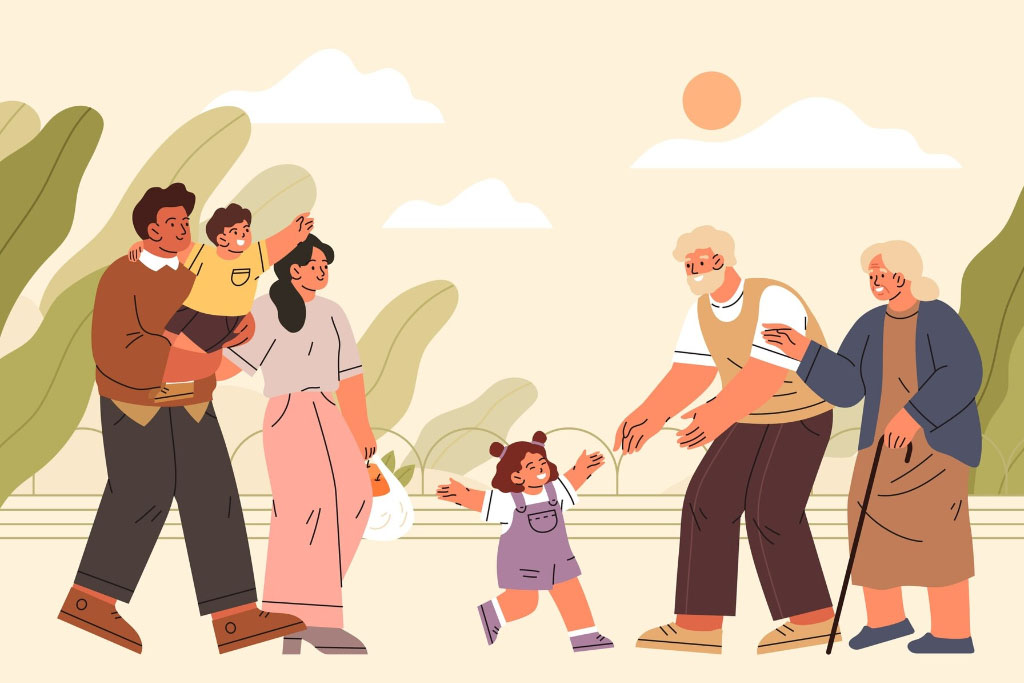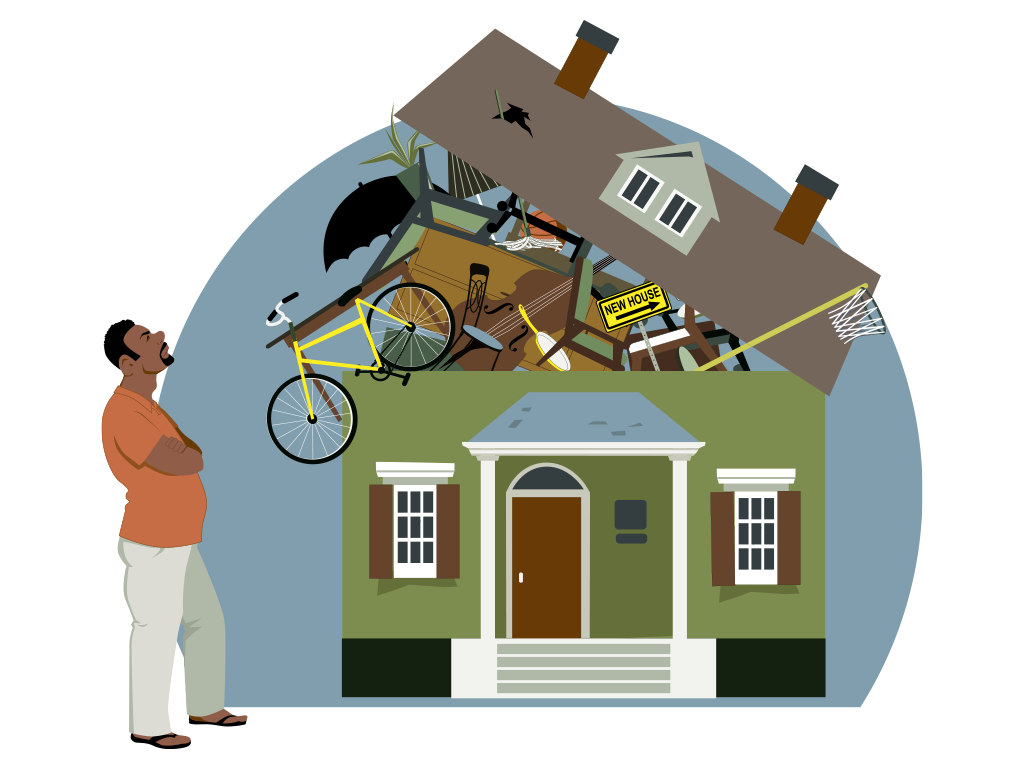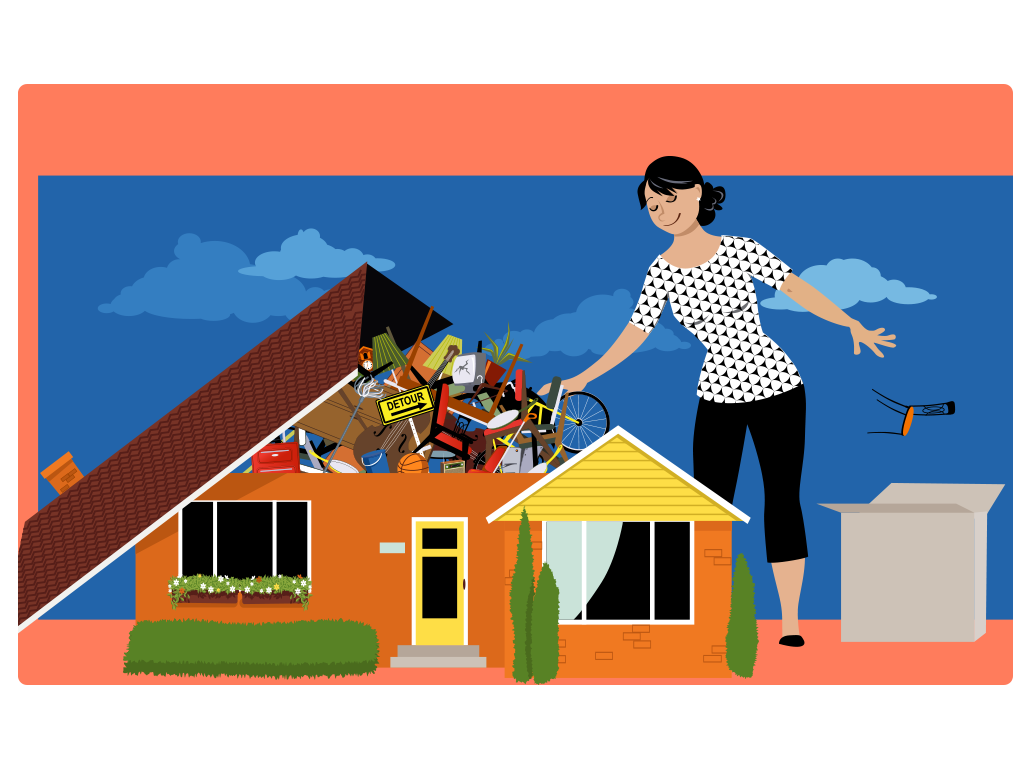A Discussion About Types of Hoarding Disorder

It’s a rather helpless feeling for someone who has this compulsive need to hold onto things that may or may not have value. It happens to a lot of people for a lot of reasons but always with the same results. The lives of these folks start to feel a little out of sorts as the clutter builds up around them.
They have a term for people who compulsively collect things. They are called “hoarders.” Hoarding is described as a pathological or compulsive need to accumulate things, refusing to dispose of whatever is being accumulated. A hoarding disorder can have a hugely adverse effect on the hoarder’s life. The effects can include:
- A cluttered and disorganized living environment
- Distress and despair over the need to hoard things
- Displacement of a social life
- Unhealthy living environment where pests and diseases can flourish
Types of Hoarding Disorders:
It’s important to note there is a big difference between hoarders and collectors. That difference is collectors tend to still be tidy and organized about their collections. Hoarders tend to live their lives in total disarray.
The symptoms of hoarding include:
- Disorganized thinking
- Inability to make decisions
- Obsessive-compulsive thoughts
- Unhappiness in relationships

11+ Years Experience dealing with Hoarding
Need someone to talk to that understands hoarding?
Get a Free Hoarding Clean-up Estimate.
Or call us today for immediate assistance.
Types of Hoarding Disorders
Believe it or not, there are several different types of hoarding. The types of hoarding are determined by what the hoarder is collecting and or how they do their hoarding. In the sections below, we will describe types of hoarding that seem to be the most destructive. It’s important to keep in mind that while hoarding can play out as a disturbing and destructive behavior, it is treatable.
Trash hoarding
Trash hoarding can best be described as the hoarding of things that no longer have any use or value. These items have typically lived out their usefulness or are broken beyond repair.

Items that trash hoarders tend to hoard include old newspapers, plastic containers, cardboard boxes, paper wrappings from food goods, old electronics, torn clothing, empty cans, glass containers, and old magazines.
A lot of trash hoarders will claim to be interested in recycling to help the environment. The problem is they never get around to recycling, or they find it distressing to have to part ways with their trash.
Food hoarding
Of all the hoarding behaviors, food hoarders seem to have the best reason for their hoarding. They often claim that the basis for their behavior is making sure they and their loved ones will always have a food supply in case of a disaster or emergency. Of course, there is nothing wrong with storing a little extra food.
Where food hoarding becomes a problem is when the amount of food being accumulated goes well beyond what is reasonable. The “extra” food tends to cover every spare space within the kitchen, cellar, or garage.
Eventually, all of the stored food will hit its expiration date. While always trying to be mindful of not wasting food, that is exactly what food hoarders do when they can’t possibly eat everything they have accumulated.
Compulsive shopping and hoarding
Compulsive shopping and hoarding create a very dangerous combination of psychological disorders. Compulsive shopping leads the person to buy anything and everything they can get their hands on. After they buy it, their hoarding disorder prevents them from using or disposing of it.
As a side benefit of compulsive shopping, hoarders use their shopping habits as a way of fulfilling the need for something new and exciting in their lives.
The problem with this is they can never fill the holes in their lives no matter how much they buy.
The problem with this is they can never fill the holes in their lives no matter how much they buy. As stuff accumulates, they see it and it just adds to their distress. And…That leads to still more shopping.
Animal hoarding
It seems that every neighborhood has a “cat lady.” If someone owns and cares for 4 or 5 animals, it might be they like the companionship of pets and feel like humanitarians. Being a pet person crosses over to animal hoarding when a person accumulates more animals than they can reasonably take care of with their resources.

This kind of hoarding can lead to some really serious issues. First and foremost, animals are living beings. They require grooming and feeding. They also excrete urine and feces on a regular basis. If an animal hoarder can’t properly care for their animals, those animals will attract diseases and eventually die. That can lead to foul orders and other dangerous environmental problems.
Sentimental hoarding
Sentimental hoarders have a longing for the past. When something takes on meaning in their lives, they refuse to let it go under the pretense they will be letting go of parts of themselves. Clothing hoarding could fall under the sentimental hoarding category.
The reasons someone might hoard things for sentimental reasons include:
- Not wanting to get rid of things that remind them of loved ones
- Holding onto things that remind them of specific places or adventures
- Holding onto things from a certain time period
- Holding onto things that they have been deprived of at some important time in their lives
Paper Hoarding
Paper hoarding is just what it sounds like: out-of-control collecting of newspapers, magazines, letters, cards, clippings, receipts, outdated medical and legal records, or even books. Often overlapping with trash hoarding, sentimental hoarding, recyclable hoarding, and compulsive shopping, this behavior is dangerous because the items are flammable. In addition, stacks or boxes of paper materials often block pathways in the home. Such hoarding may be driven by strong emotions connected to the past and future:
- Comfort from memories of lost loved ones and happier days
- Reminders of abandoned hopes and dreams
- Intentions to complete well-meaning but procrastinated tasks that feel overwhelming
- Dread of being unprepared for a future financial or legal crisis
- Avoidance of painful feelings triggered by going through old items
Treating Hoarding Disorders
Treatment for diagnosed hoarders is difficult. These are people who don’t recognize their behavior nor are they able to comprehend how it affects their lives.

Treatment for a hoarding disorder will require some level of psychotherapy. The individual will need to learn how to recognize their behaviors and use mental and emotional tools to adjust that behavior. It will also require the care, patience, and participation of loved ones at some level.

About Jennifer Hanzlick
Clutter Trucker is a Denver-based hoarding clean-out company founded by Jennifer Hanzlick. Jennifer leveraged 15 years of corporate experience in to start the company in 2008. Her mission is to help and educate individuals and their loved ones who have hoarding disorder. A featured speaker at Ted X Boulder, Jennifer works directly with community and non-profit organizations to boost public awareness about the condition. To that end, she founded the Colorado Hoarding Task Force in 2015.
 720-982-7856
720-982-7856







